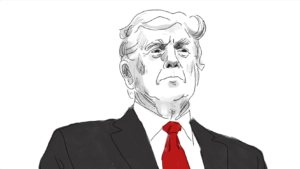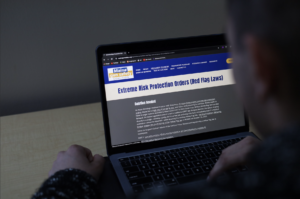Recently, the Trump administration extended a suspension on federal student loan payments through Jan. 2021. As a result of the COVID-19 pandemic, students across the nation have found themselves unable to pay for school. This new development was announced by Secretary of Education Betsy DeVos and is an extension of the moratorium signed by Congress in March 2020, which was extended in August. This extension from August was supposed to cease at the end of the year, and many wondered whether the Trump administration would continue to take action to help ease the financial burden of loan payments for students across the country.
“The coronavirus pandemic has presented challenges for many students and borrowers, and this temporary pause in payments will help those who have been impacted, the added time also allows Congress to do its job and determine what measures it believes are necessary and appropriate. The Congress, not the executive branch, is in charge of student loan policy,” DeVos stated, according to the Portland Press Herald.
This new course of action will not only give students and their families more time to figure out how to continue paying off their student loans, but it will also give President-elect Joe Biden time to work alongside Congress to come up with their plan to deal with this crisis. It is unclear what Biden plans to do about this situation, and whether the freeze on payments will continue after he and Vice President-elect Kamala Harris take office.
With the Trump administration allowing multiple extensions to payment freezes, the clock is ticking as borrowers wait to see how the Biden administration will assist them. While Biden has not yet stated whether he will work with Congress to issue another extension, he does plan to tackle the student debt crisis, which is currently sitting at $1.7 trillion.
“Biden has supported $10,000 worth of federal student loan forgiveness in light of the pandemic but has so far resisted taking a position on calls from Warren and Sen. Schumer to cancel as much as $50,000 per borrower. On the campaign trail, however, the president-elect said he would like to provide full student loan forgiveness for families with less than $125,000 in household income that matriculated through public colleges and universities,” Andrew Pentis, certified student loan counselor and debt policy expert who works for Student Loan Hero, a branch of LendingTree, stated. Student Loan Hero offers assistance in how to deal with debt and can give detailed answers to questions that borrowers may have.
This new extension will affect students all across the country. For University of Maine senior fourth-year nursing student Cody Veilleux, her upcoming December graduation poses some uncertainty.
“Since I have a job lined up, I’m not stressed about [student loans] yet,” Veilleux said. “However, if I can’t start that job and thus can’t make money, then I’ll be more nervous. I think the Biden administration should continue [payment extensions]. Although it won’t benefit me, I know lots of new grads who may not be able to get a job due to the virus and thus have no way to start or continue paying.”
The student debt crisis continues to loom over young adults. The COVID-19 pandemic has made finding jobs difficult and the price of education has continued to increase without a cap in recent years.










